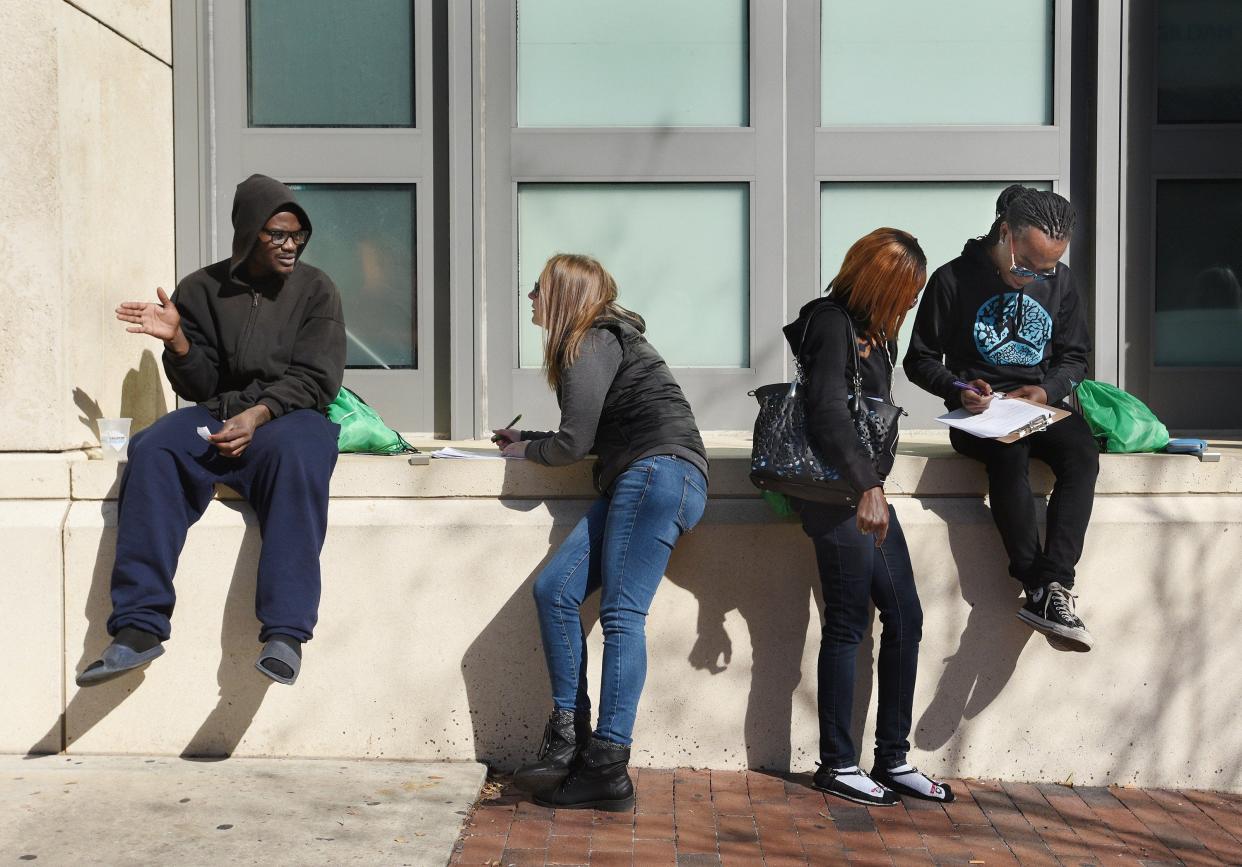Jacksonville-area homeless counts limited this year to 'minimize spread' of COVID-19

Because of the ongoing COVID-19 pandemic, Changing Homelessness has decided against mobilizing volunteers to conduct a 2022 count of unsheltered homeless people in Duval, Clay and Nassau counties.
The area agency for homeless prevention will count people who have no permanent home but are living in emergency or transitional housing, according to a statement on the nonprofit's website.
"We feel the impacts of the omicron variant throughout our system of care and want to minimize any further spread of the virus to our neighbors experiencing homelessness as well as our community partners," according to the statement.
Coronavirus: Omicron surge declining in Jacksonville and state; what's next is 'tough to predict'
2021 Point in Time: Pandemic may have caused under-reporting in Jacksonville-area homeless count
The Point in Time count of homeless but sheltered people will be done "working closely with our community partners who provide housing services for those experiencing homelessness," according to the statement.
Every January, Changing Homelessness takes part in the nationwide census and survey of the homeless population. Typically, staff and 150 to 200 volunteers visit areas in Clay, Duval and Nassau where homeless people congregate for a "federally mandated, time-stamped snapshot of homelessness on a given day," according to the nonprofit.
The U.S. Department of Housing and Urban Development requires an unsheltered count be done at least every other year, and Changing Homelessness conducted one in 2021. The sheltered count must be conducted annually.
Last year because of COVID-19, the nonprofit used only staff from area homeless-prevention agencies — none of the usual community volunteers — and extended the count from one day to three. Staffers also conducted socially distanced surveys at "known locations" of homeless people in downtown Jacksonville, as well as the Sulzbacher center's Urban Rest Stop and Mission House in Jacksonville Beach.
'Everyone pitched in': Despite COVID-19, Sulzbacher continued to transform lives of the homeless
Guest column: Homeless issues in dire need of attention ... and a solution
'Cardboard City': Nonprofit project sheds light on what it's like to be homeless in Jacksonville and beyond
Still, Changing Homelessnes CEO Dawn Gilman and other area homeless prevention officials questioned the accuracy of the 2021 data. The count appeared to show that the number of unsheltered people was almost 50 percent less than 2020.
That data may be too low, Gilman said at the time, because of the impact of the pandemic on homeless populations and their movements and on collecting data about them. Also, a "quirk" in a new app the agency used to collect data produced "invalid data" to gauge the chronically homelessness, she said.
Here's what the 2021 report showed
• 230 unsheltered people, compared to 541 in 2020.
• 247 families experiencing homelessness, living in emergency or transitional housing, compared to 370 in 2020.
• 160 veterans experiencing homelessness, living in emergency or transitional housing, compared to 181 in 2020.
• 42 youth/young adults experiencing homelessness, living in emergency or transitional housing, compared to 18 in 2020.
Regular counts of the homeless are needed for a variety of reasons.
"The PIT count helps us understand the state of homelessness in our community," Changing Homelessness said about the Point in TIme process. "Collecting data on homelessness and tracking progress can inform public opinion, increase public awareness and attract resources that will aid in our mission to end homelessness."
bcravey@jacksonville.com, (904) 359-4109
CHANGING HOMELESSNESS
For more information contact the agency at 660 Park St., Jacksonville, FL 32204; (844) 367-7783 or info@changinghomelessness.org or go to changinghomelessness.org.
This article originally appeared on Florida Times-Union: COVID-19 changes plans for homeless count in Jacksonville area

